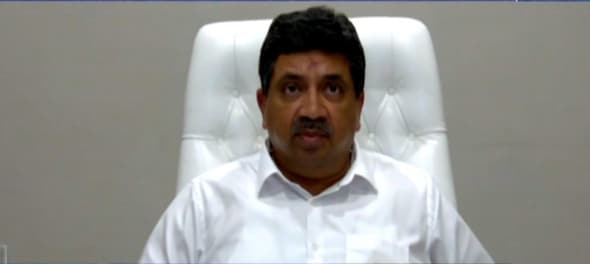
Last week, Karnataka, Kerala, and Tamil Nadu protested against what they perceived as unfair treatment in the distribution of taxes from the national pool.
The 15th Finance Commission's methodology, which determines the allocation of funds among states, has come under scrutiny, with concerns raised about the widening gap between richer and poorer states.
Tamil Nadu Finance Minister, speaking to CNBC-TV18, Palanivel Thiaga Rajan, expressed his dissatisfaction with the Finance Commission's approach, which he said has been consistently flawed for the past 25-30 years.
Thiaga Rajan observed that the commission aims for transparency, equity, and efficiency, but has failed "spectacularly". According to him, rich states are becoming richer, while poor states are getting poorer, contrary to the intended outcome of fund transfers.
“The Finance Commission takes more and more money away from well-to-do states and gives it to the poorer and weaker states. This happens in all federal societies and in most societies if you take the money from the developed and give the money to the less developed, the gap closes and the equity comes out of this fund transfer," he said.
He added, "However, for the last 25 years across all governments and all parties, the gap has not been closing; in fact, it is widening. The poor states are getting poorer and the rich states are getting richer. So the Finance Commission is doing something profoundly wrong. This transfer of money is not getting you the outcomes that it should.".
Under the Indian Constitution, taxes from income, customs, and excise are collected by the central government and must be shared with states based on formulae established by the Finance Commission, which is appointed every five years. The 15th Finance Commission utilised criteria such as income distance, population, and demographic performance to divide taxes among states.
The application of these criteria has resulted in a decline in the share of some states like Karnataka, Kerala, and Tamil Nadu. Despite their significant contributions to the central pool, Karnataka's share dropped from 4.7% to 3.6%, Kerala's from 2.5% to 1.9%, while Tamil Nadu's share remained mostly static. This has fuelled discontent among these states, which argue that they are receiving disproportionately less despite being major contributors.
Thiaga Rajan proposed two solutions — the Finance Commission must ensure that no state receives less than 40% of the amount they contribute, with exceptions in rare circumstances; future payments to states must based on their education system performance, emphasising factors such as the inclusion of girls, minorities, and Dalits, as well as educational outcomes at various levels. Rajan believes that this would promote efficiency and narrow the existing gap between states.
The video of the entire interview will be uploaded shortly.
Check out our in-depth Market Coverage, Business News & get real-time Stock Market Updates on CNBC-TV18. Also, Watch our channels CNBC-TV18, CNBC Awaaz and CNBC Bajar Live on-the-go!


Repolling underway in six polling booths in Outer Manipur Lok Sabha seat
Apr 30, 2024 10:25 AM
Hyderabad BJP candidate Madhavi Latha's assets worth ₹218 crore
Apr 30, 2024 10:09 AM
With ₹5785 crore assets, TDP candidate Chandra Sekhar stirs poll attention
Apr 30, 2024 9:43 AM

